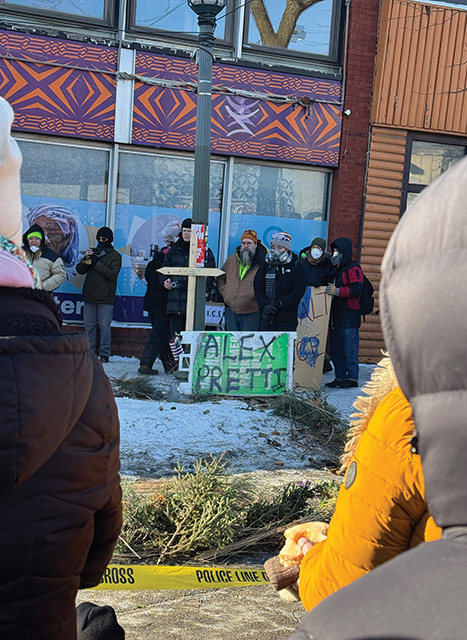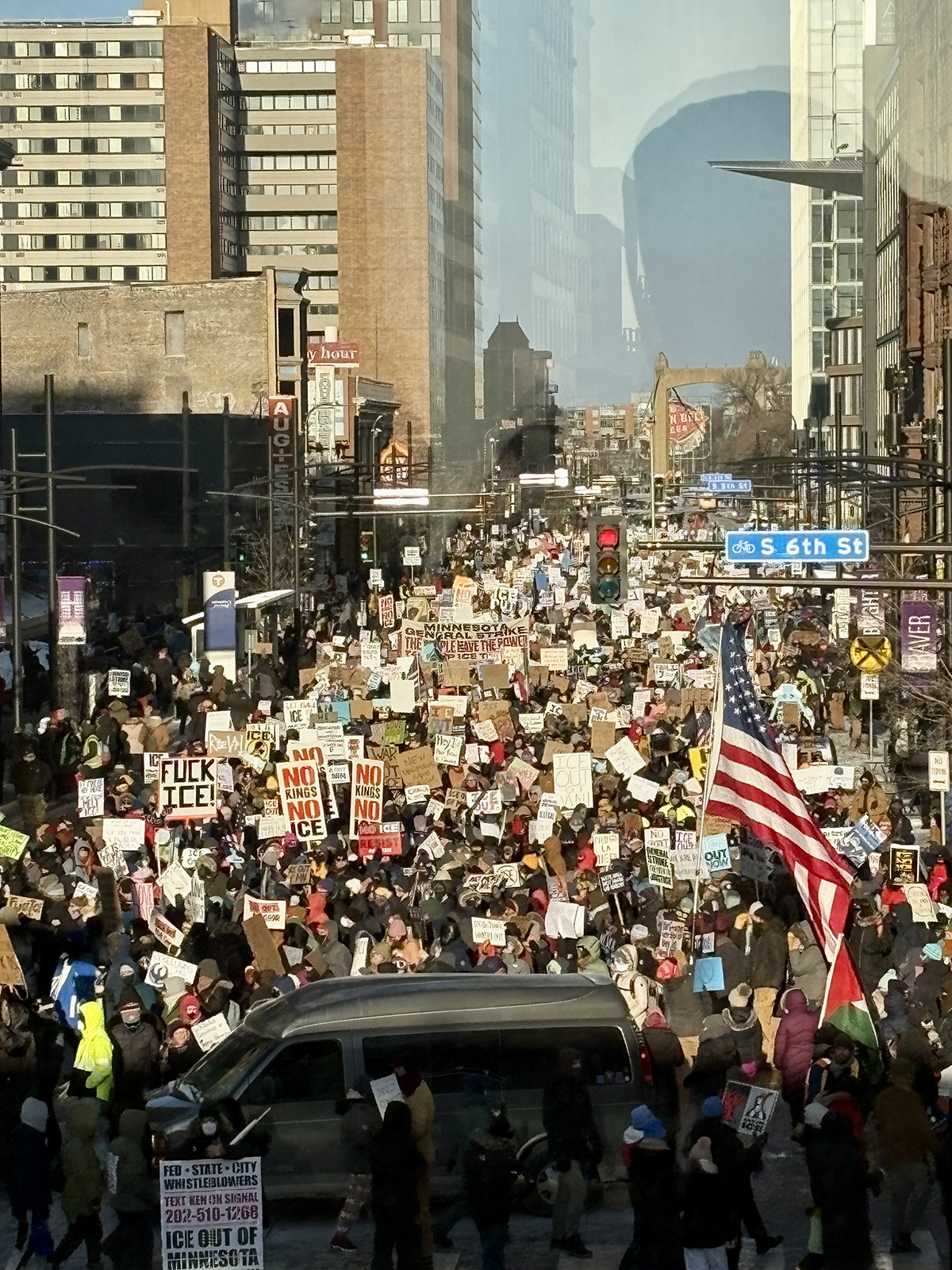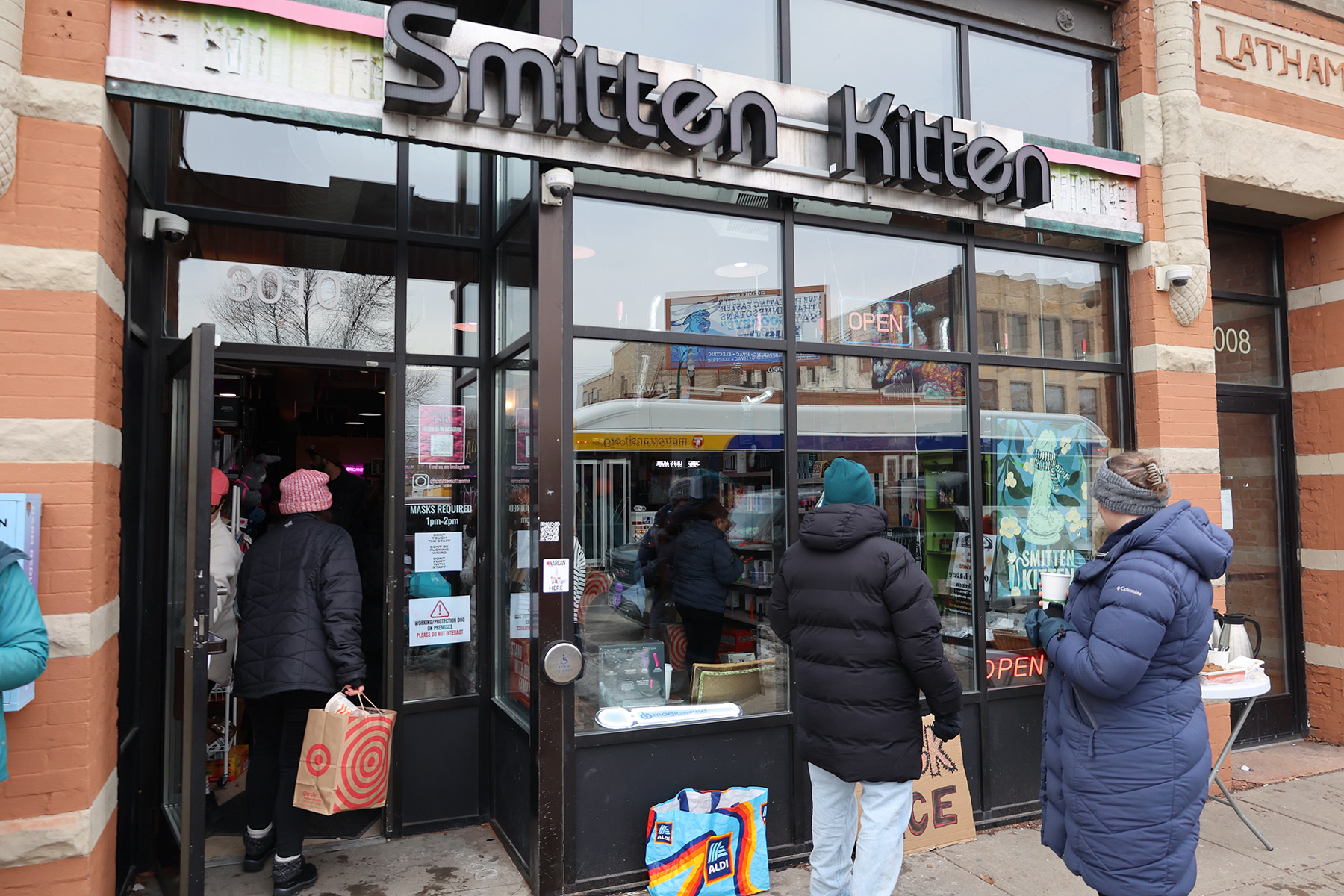Where did you grow up?
I grew up in Tulsa, Oklahoma, with my parents and two younger sisters.
What brought you to Minnesota?
My husband, Andy Wright, and I had both lived in Minneapolis during our twenties, so after we met in Viroqua, Wisconsin, we decided to move to the Twin Cities in 2008 with my two daughters, for jobs, schools, and expanded opportunities. A year later, Andy’s parents moved from Milwaukee, and we have shared a duplex in Lowry Hill since then. My sister and parents also moved to South Minneapolis over the past several years. We love Minneapolis, and my family is proof that Okies can adapt to Minnesota winters.
What do you do professionally?
I am a history professor at Macalester College in St. Paul, where I teach U.S. History courses about race, gender, childhood, medicine, drugs, and addiction.
Why did you go with oral histories as a framework for this type of research?
Oral history methods are my favorite tools. Since I am working on a history topic that is recent and a problem that is ongoing, this was the best tool for me. I wanted to preserve the stories of people who experienced loss and sorrow, as well as those who are innovating and changing the standard narrative about addiction.
History is all about change, and I am drawn to how individual narrators find their place in historical moments through the process of oral history. Giving that kind of respect to people, when you’re in an interview situation and listening deeply, also affirms who they are, where they’ve been. For me, a lot of the power of this project has been that I’ve been able to help my narrators see how important their lives and their work are to a bigger issue, a bigger audience.
Opioid Reckoning emerged out of the oral history project you created called The Minnesota Opioid Project. What is that project all about?
The project started well before I knew I was going to write a book. I wanted to make an oral history collection of as many people as possible who were affected by the crisis–individuals, parents, doctors, care providers, and others. I had no intention of writing a book using those interviews until I was approached by the publisher. I’m still working on the interviews, and I plan to eventually donate them to the University of Minnesota Library’s Social Welfare History Archive.
What are your hopes for this project and this book?
I hope to bring the stories of ordinary people and people who are working to end the opioid epidemic to the forefront of our minds and conversations. I also hope to convey how this issue is experienced by people on all sides of the problem so that we can truly dismantle the stigma that comes with opioids and other drug use and start working deliberately and methodically to decriminalize drugs.
An addiction shouldn’t destroy a life or a person’s future. I want readers to see how it has been and how we can do better.
What do most people misunderstand about opioid addiction?
That people can just stop using opioids, as if it is always a matter of personal choice.
And how does that misunderstanding affect the way we address the problem as a society?
We don’t want to look at it critically. We don’t want to be creative. Okay, this isn’t true across the board because there are people who are doing really incredible work.
I think the problem is the general public is not aware of the work that’s being done. There are so many scientists, there are so many treatment specialists, there are so many community organizations that are working day and night to improve addiction care.
What they need is the funding, the resources, and the community buy in to end the epidemic and dismantle stigma.
As you mention in the book, the subject of opioid addiction is also very personal. You have a daughter who struggled and nearly died from her addiction. How did that experience affect your interactions with the people you interviewed for this book?
Well, I am so fortunate that she lived and that she is living a full, healthy, happy life today. Our family’s experience ended up being an incredibly powerful connector for me as a researcher because most of my narrators had similar experiences, from the same or different vantage points on the topic. This created a powerful space between us for trust, acceptance, and insights.
I was ignorant about opioids and addiction ten years ago, and I learned an incredible amount from my beloved daughter and from all of my narrators, whether they are in the book or not.
When was Opioid Reckoning released, and how has it been received?
My book came out in October 2021, and I had a book launch at Macalester that month. It was also a Minnesota Book Award finalist in non-fiction last spring. I have been presenting to a wide variety of groups across the state, and been interviewed on radio, tv, and for podcasts.
Two of my favorite podcast interviews were with Margaret Swift Thompson, who started Embrace Family Recovery after working at Hazelden for many years, and another completely different conversation with an English professor, Charles Woods’ The Big Rhetorical Podcast.
It is equally exciting to talk about the issues I raise in the book with people who know a lot about addiction and recovery and people who know very little. I have found that most people don’t understand how drug treatment evolved and how much of an influence Minnesota has had on our understanding of “rehab,” and which so many assume is the only way to recover from addiction.
Where can readers purchase Opioid Reckoning?
My book is available at local bookstores and many places online in hardback, paperback, as well as in an audiobook format, narrated by me.
I will be signing books at the Twin Cities Book Festival at the Fairgrounds on October 16, from 1-1:30pm, and on October 23, I will be presenting at the Twin Cities Jewish Community Mental Health Education Conference at Temple Israel.
I am happy to speak to book clubs, support groups, and any other civic or social groups. I can be reached via email at, amycsulli@gmail.com






